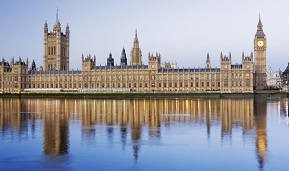Last week, speculation and anticipation was high as the British public braced itself for a change in monetary policy. The outcome was welcomed by some and disappointed others (in particular, one particular member of the Bank of England’s Monetary Policy Committee, Ian McCafferty). As rates have remained at 0.5%, the speculation will likely gain pace and attention will turn to those who are more inclined to Mr McCafferty’s recommendations.
The implications for a change in the base rate are not confined to the UK, as global stock markets follow each pending announcement with great interest. While Mark Carney, Governor of the Bank of England, has one eye on the UK economy he will also have another on the US, as the Fed assesses its options on when to raise rates. If the BoE goes before the Fed, the pound will likely strengthen against the dollar, leading to further deflation and another headache for Mr Carney – who would be a Bank of England governor?
Why interest rates matter?
Fundamentally, the base rate is a tool, set independently by the MPC, to manage inflation and economic growth. The effects are felt on a micro and macro level. On a micro level, the British borrower, lender and investor need to take note, particularly around borrowing costs. On a macro level, it is inflation, exchange rates and confidence levels that feel the brunt.
Costs of borrowing
Economic theory says that an increase in the MPC interest rate generally leads to higher commercial interest rates, including the rates for mortgages. Therefore, if rates remain the same, it would be rational to assume that mortgage rates will remain the same.
Not necessarily. At the start of the year, several lenders including Barclays, Santander and Yorkshire Building Society increased their rates, purely because of the speculation on a rate hike this year. These increases were admittedly relatively small but the point here is that the complexity of the mortgage market in the UK and the tough competition within the industry means the direct correlation between MPC base rates and mortgage interest rate does not necessarily apply.
Inflation
McCafferty aside, the MPC decided that, in the short term, inflation will not rise as fast as expected. The current strength of the pound (which leads to more expensive – and less competitive – exports) and low energy and food prices over the past few months (which means that businesses in these sectors have not been able to invest and spend) will mean the downward pressure on inflation will likely continue “at least until the middle of next year.”
Consumer spending is also a key element to consider for inflation. Alongside the base rate announcement, the Bank of England revised up its expectations for UK growth and earnings. If this is accurate, and energy and food prices slowly start to rise, an interest rate rise is certainly around the corner.
Rising value of the pound
When a rate rise does come, we will also see an increase in the value of the British pound. In simple economics, this is because a higher interest rate means greater demand for the pound from international investors (who want to save more in British banks that deliver a greater rate than other countries).
With rates remaining the same, international investors have paused their shorter term bets on Sterling until next year, which caused the pound to fall following the August 6th announcement. However, given that speculation will only grow, sterling is expected to hold and increase its value in the longer term. Whilst it is good news for British holiday markers, UK exports remain less competitive.
Confidence, spending and investment
In June, market research company GfK said British consumers’ mood was now the most positive since January 2000. The number of shoppers agreeing that now was a good time to make major purchases has grown sharply over the summer, suggesting that the recovery is in fact strong and an interest rate rise may be needed to cool the economy. Mark Carney will be paying particular attention to the surge in British household spending to see if this continues into the later part of the year.
The reality of returns
In reality, the British economy has faced a turbulent few years and a modest (and expected) rise of 25 points (ie 0.25%) will probably not impact consumers right away. Given the time lag before the full effect of an interest rate rise is felt, as well as more the pressing and present demands of the consumer (for example to get on the housing ladder), people may feel that now is the time to keep spending regardless of the increased rates in the banks.
The loss of confidence in traditional financial services has also meant that consumer behaviour is not entirely guided by interest rates. From dipping into stock markets and classic cars to turning to alternative finance, like Peer-to-Peer (P2P) lending, consumers are much more informed about the options available to make the most of their investments. The potential gradual rise in interest rates will be another factor to look out for but is unlikely to be the deciding one.
